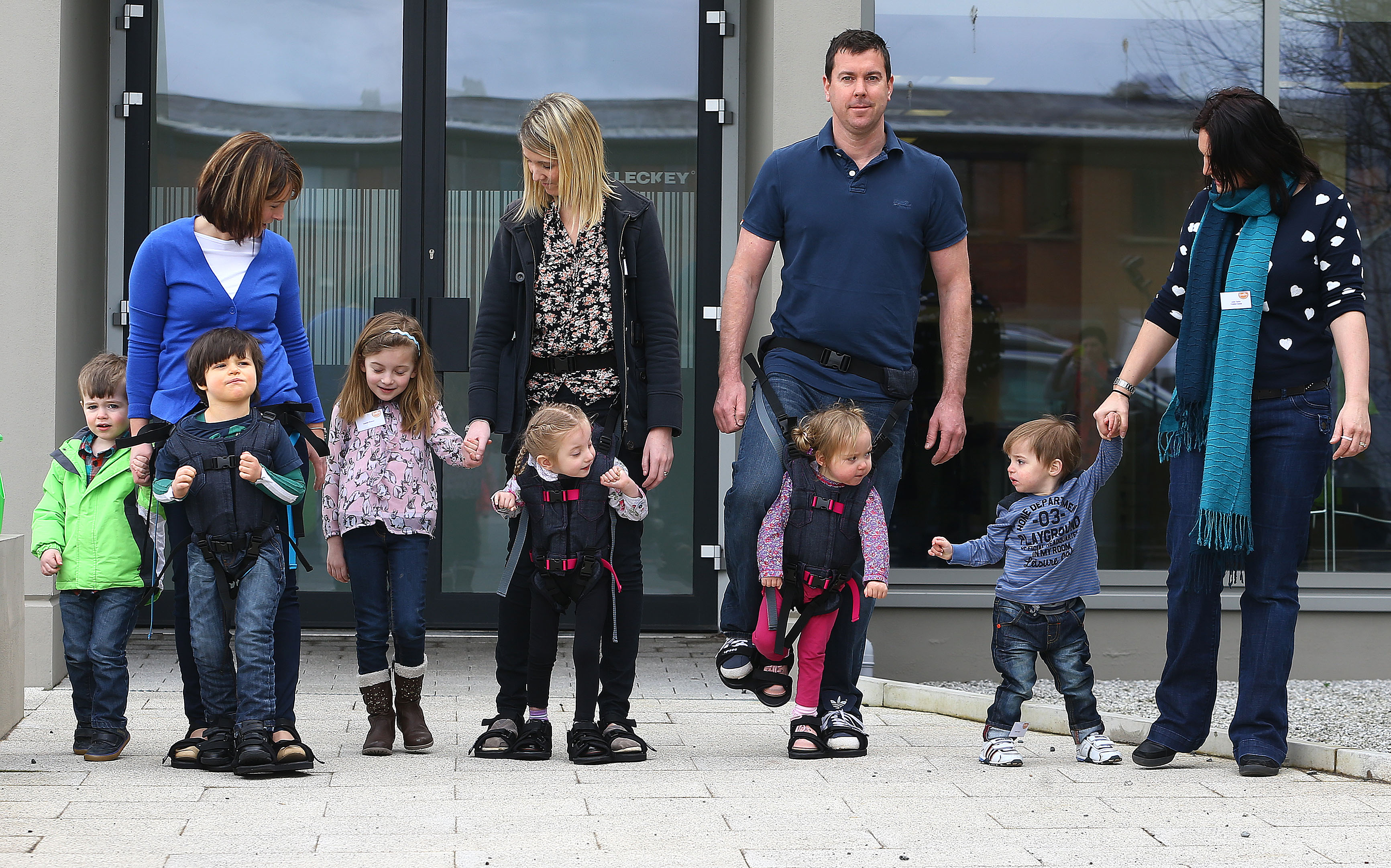
The Firefly Upsee is a walking baby carrier, designed to give the experience of ambulation to children who have motor delays or mobility restrictions. It brings the child upright, anchored closely to a caregiver, while also leaving her hands free to explore and play.
The design is a collaboration between Debby Elnatan, the Israeli mother of a child with cerebral palsy who had solely used a wheelchair to get around, and the Firefly team at the Leckey design company. Developed by a collaboration among clinicians, engineers, therapists, and textile experts, the design will come to the market in early April. There's a free webinar for professionals in physical therapy fields and others.
It'll be interesting to watch what the user-consensus yields about its uses as a therapeutic tool—how its loadbearing structure affects these young growing bodies with varying degrees of muscle tone and postural challenges.
Perhaps the biggest intervention here is a social, interactive one: So many therapeutic tools for motor skills help a child to "have fun" while working muscles and strengthening stamina, but in isolation. But this tool fundamentally brings children into the eye-to-eye world of their typically-developing peers. The social brain is so foundational to global development, and it's fed in part by reciprocity, touch, and eye contact. The Firefly Upsee brings its users into upright space, yes—but into relational space too.